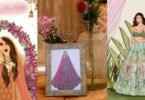From Karnataka’s Mysore Silk to Gujarat’s Bandhani, India is filled with other conventional handlooms. Some colourful, some with deeper ancient which means, and on the subject of nation’s culture-they are all attention-grabbing. Studying about them gives an perception to be told extra about our nation. Therefore we’ve rounded a number of distinctive materials to provide you with a lowdown in regards to the other handloom tactics used across the nation.
Distinctive Materials of 28 Other Indian States:
So let’s get began on a terrific cloth excursion of India:
1. Maharashtra – Paithani:
The Paithan the city of Aurangabad, Maharashtra is known for its hand-woven silk saree-Paithani. This cloth was once used widely by means of the royals. On account of its extensive weaving methodology, the material seems to be beautiful from all sides. This cloth continues to be a large a part of Maharashtrian tradition with its weaving middle in Yeola.
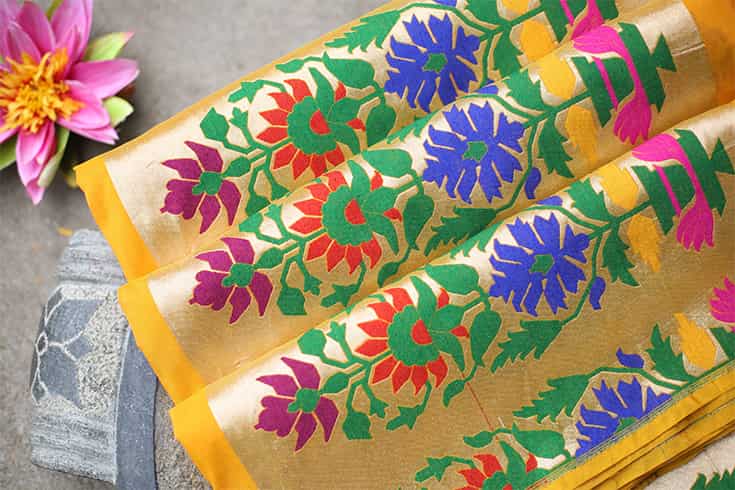
Supply: weaveinindia.com
2. Gujarat – Bandhani:
Had been you conscious about the truth that Bandhani’s historical past pass proper again to Indus Valley Civilization, the place dyeing procedure was once began round 4000 BC? The time period Bandhani was once derived from the Sanskrit phrase ‘banda.’ This surprising tie-dye cloth was once made by means of Khatri, a Gujarati neighborhood, and is recurrently to be had in sun shades of black, yellow, inexperienced, blue, crimson, and white dots that deliver out attention-grabbing designs at the cloth.

Supply: nalli.com
3. Karnataka – Mysore Silk:
When Tipu Sultan dominated over Mysore, the silk trade witnessed an enormous expansion. Until date, the state is the most important manufacturer of silk. The wealthy, silk subject matter from Mysore is known for his or her high quality and artistry. They’re historically designed the use of gold zari and natural silk. On account of those causes, the Mysore silk is known no longer best in India, however the remainder of the arena.
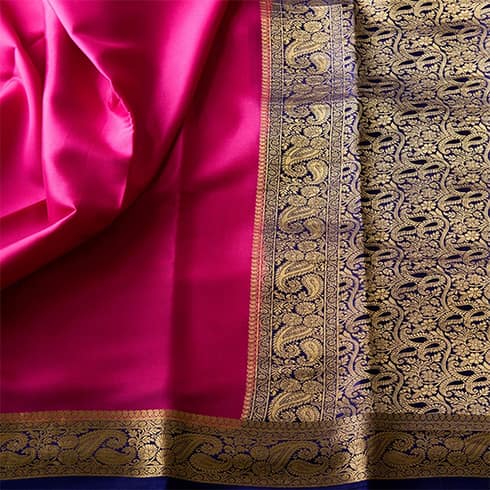
Supply: naanjil.com
4. Rajasthan – Shisha:
The Mughals offered the shisha embroidery within the seventeenth century. Previous, they used the reflect paintings embroidery on décor quite than on garments. Again to the current date, shisha is now famously used no longer best by means of Rajasthani other folks but additionally within the states of Gujarat, Haryana, and Madhya Pradesh.
In addition they use embroidered banners like shish torana and abla torana on their house entrances to push back evil.
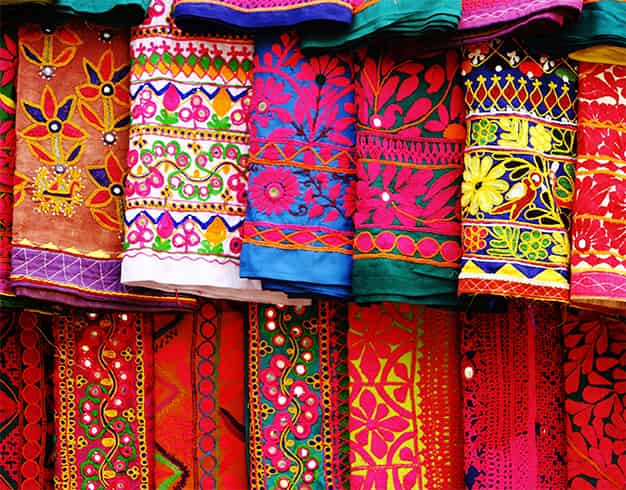
Supply: craftsvilla.com
5. Tamil Nadu – Kanjeevaram Silk:
There are lots of handwoven silks to be had in India, however the costliest ones are Kanjeevaram. This fashionable silk cloth is from Tamil Nadu and is known from their beautiful cloth and zari paintings. At the moment, the Kanjeevaram saree stays some of the fashionable Indian sarees with its wealthy depictions of gold used.
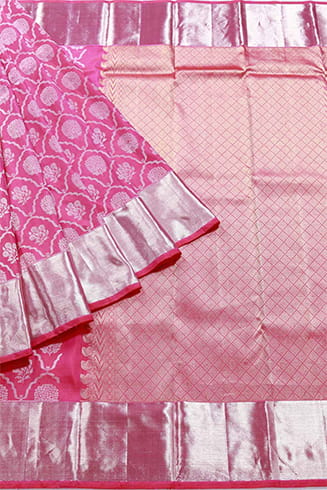
Supply: kalanjali.com
6. Kerala – Kasavu:
The white and gold kasavu saree is famously utilized by the folks of Kerala particularly all over the birthday celebration of Onam. Kasavu is referred to the gold zari border depicted at the mundu-saree this is comprised of 100% unbleached cotton. Those saree options kara designs at the backside, and peacock designs at the pallu.
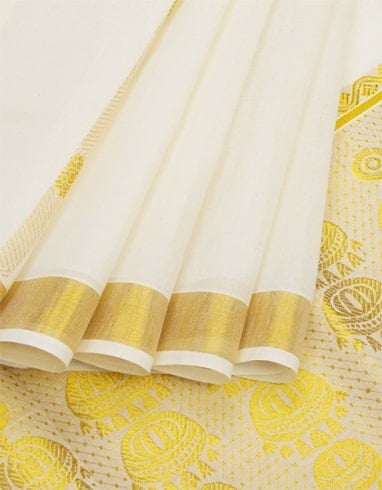
Supply: kuberansilks.in
7. Nagaland – Naga Shawls:
Weaving is a big conventional career of the Naga other folks. The Naga shawls are extremely symbolic and are made the use of black and crimson wool. Each main tribe in Nagaland has their very own distinct trend that includes spear, human head, spear, tiger, and elephants.
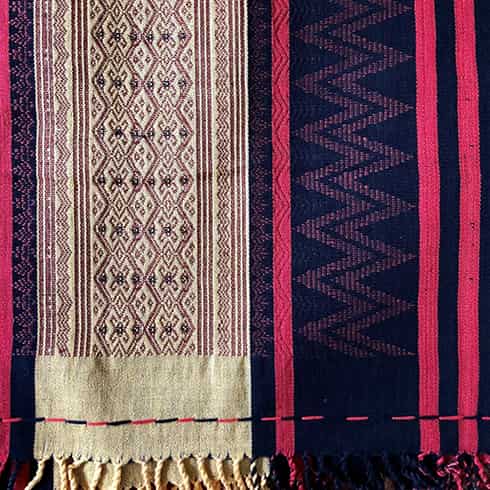
Supply: divineartscompany.com
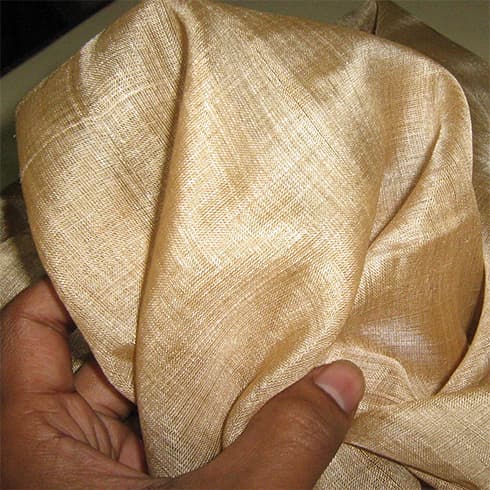
Supply: navaindia.com
10. Himachal Pradesh – Kullu Shawls:
Kullu shawls are handwoven from 3 wool varieties particularly Angora, Merino, and native sheep wool. Those shawls from Himachal Pradesh are recurrently worn by means of each women and men that includes geometric patterns and brilliant hues. Even with the steep worth, the Kullu shawls are a lot in call for each in India and outdoor of India.
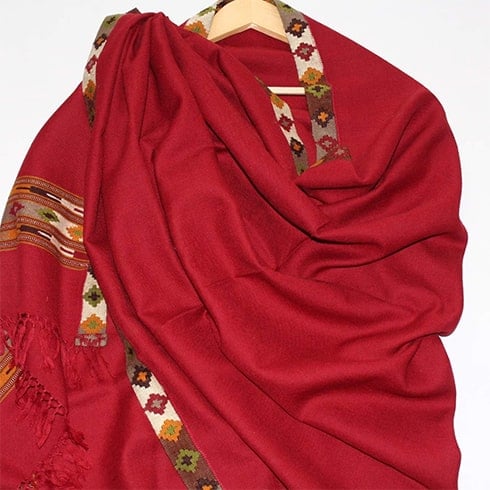
Supply: amazon.in
11. Assam – Muga Silk:
The Muga silk from Assam is known for its wealthy texture and distinctive cloth. This hand-washable silk is sometimes called golden fibre that includes a herbal yellow gold tint. It was once as soon as worn best by means of the royals however it’s now widely used for making the standard apparel of Assamese ladies.
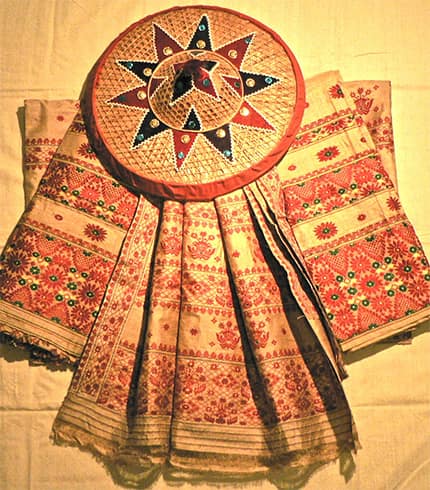
Supply: wikipedia.org
12. Goa – Kunbi:
The Kunbi cloth from Goa is a cotton cloth in chequered design most commonly used on sarees. It was once used within the olden instances by means of tribal ladies. After the Portuguese creation, the usage of the Kunbi saree noticed a downfall. The weaving of the similar stopped by means of twentieth century.
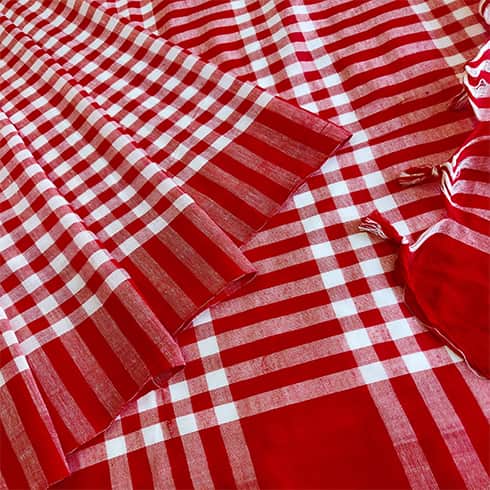
Supply: sanskrutistore.com
13. Andhra Pradesh – Kalamkari:
Kalamkari is derived from the Persian phrases, qalam (pen) and kari (craftsmanship). All the way through olden instances, this artwork was once used for telling Hindu mythology tales influenced from Hindu deities. This cloth is now popularly used as a block print on maximum Indian attires.
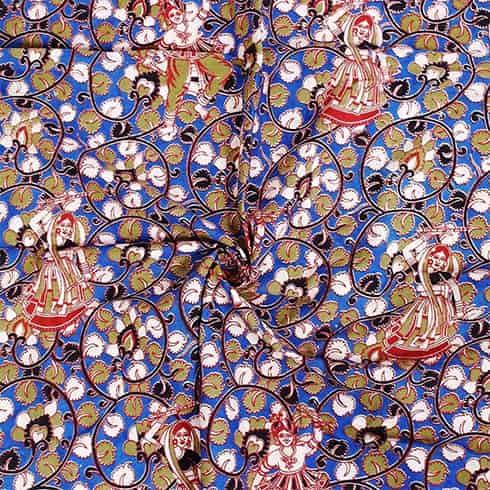
Supply: runfab.com
14. Arunachal Pradesh – Apatani:
The well-known cloth of Arunachal Pradesh is the Apatani weave. This artwork methodology is thought of as to be probably the most revolutionary out of the entire tribes of the state. The woven cloth options geometric designs, angular patterns, and zigzag completing. The folk of the state put on this as a part of their day by day dresser selection.
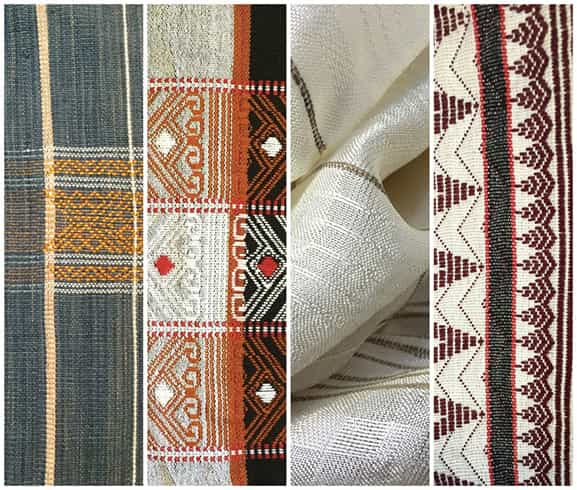
Supply: indigolionglobalhandmade.com
15. Bihar – Bhagalpuri Silk:
For the unfamiliar, Bihar is healthier referred to as the silk town. It is because the silk weaving trade at Bhagalpur, Bihar has a historical past. The tussar silk is probably the most recurrently used cloth comprised of colourful threads and comprised of tussar cocoons. Sarees designed out of tussar silk offers out probably the most stunning end. Because of this, the Bhagalpuri silk sarees are most well liked as a result of their wide variety of colours and design.
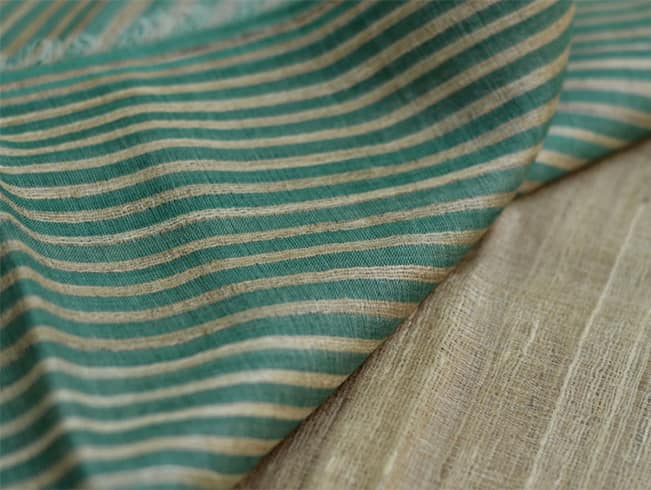
Supply: gathashop.com
16. Chattisgarh – Kosa Silk:
The kosa silk is the well-known cloth utilized in Champa district of Chattisgarh. This wealthy cloth is thought of as to be the best on the earth most commonly as a result of its sturdiness. The entire weaving strategy of kosa silk sarees takes 3 to 5 days. It’s mentioned to be comprised of a unprecedented trojan horse.
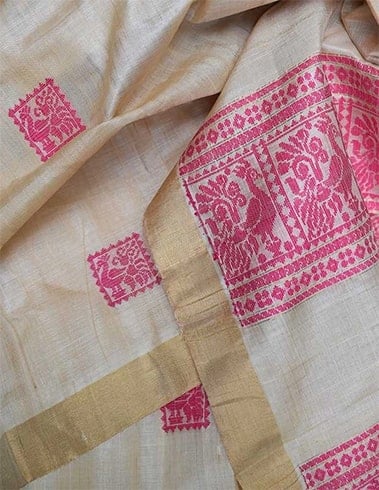
Supply: india1001.com
17. Haryana – Panja Durries:
A handloom culture this is broadly utilized in Panipat, Haryana is Panja. This weaving methodology derives its title from the software, Panja. It’s basically used for growing rugs, flooring coverings, and durries. The Panja cloth is produced out of thick threads and contains distinctive, stunning patterns.
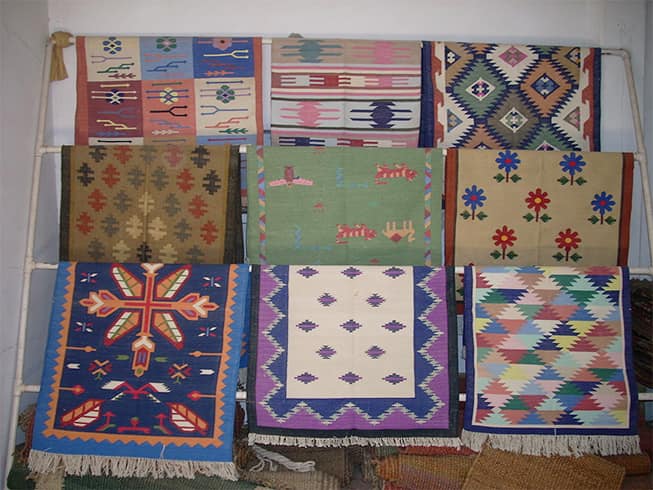
Supply: wikipedia.org
18. Jharkhand – Kuchai Silk:
Kharsawan-Kuchai, a Jharkhand area produces the Kuchai silk, which is an natural Indian cloth. This has not too long ago witnessed a emerging call for. The large unfold promotion of the material has promoted many artisans and weavers across the area. Kuchai silk is now in call for in each India and in another country.
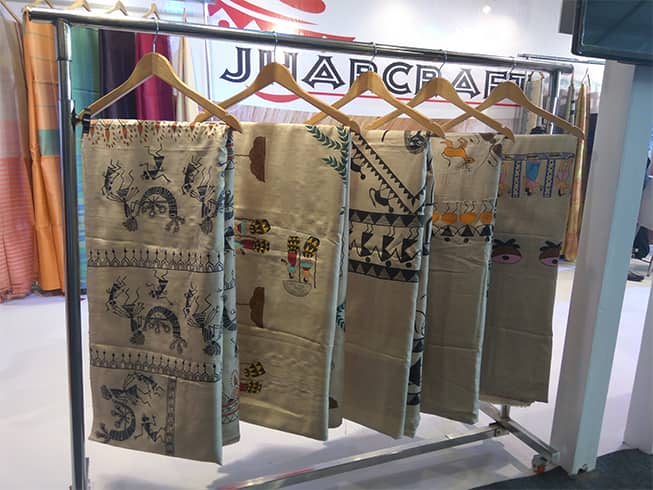
Supply: twitter.com/InvestJharkhand
19. Madhya Pradesh – Chanderi:
The standard saree of Madhya Pradesh, Chanderi was once first offered by means of Shishupal, Lord Krishna’s cousin. Those conventional sarees are to be had in Chanderi cotton, natural silk, and mixture of silk and cotton. Its light-weight cloth has earned its different title, woven air.
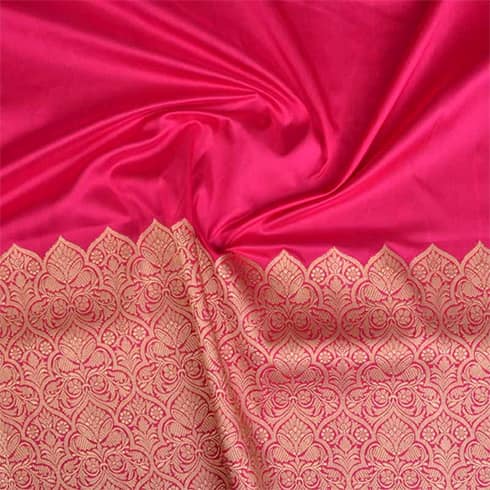
Supply: ffab.com
20. Manipur – Phanek:
The standard Manipuri dress, Phanek is a color-block striped skirt this is made up of silk thread and cotton. It most commonly includes a heavy embroidered border on the backside. That is most commonly worn as a half-saree matched with shirt.
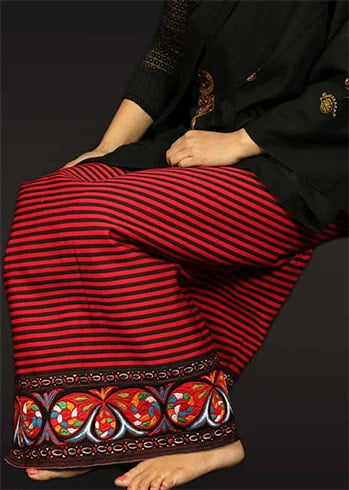
Supply: giskaa.com
21. Odisha – Sambalpuri Saree:
Sambalpuri saree is most well liked within the Odisha areas of Bargarh, Sambalpur, Sonepur, and Boudh. This can be a handwoven ikat saree wherein the yarn is tie-dyed essentially sooner than being woven into a wonderful cloth. There are different forms of Sambalpuri saree like Pasapali, Sonepuri, Barpali, Bomkai, and Bapta, which can be referred to as pata.
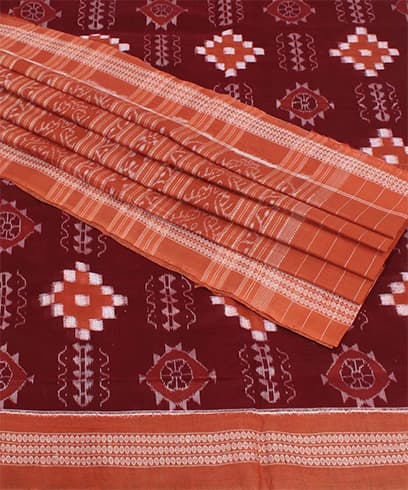
Supply: gocoop.com
22. Punjab – Phulkari:
The Phulkari paintings is a not unusual embroidery paintings of floral depictions used on materials by means of the Punjabi ladies. This distinctive design is made at the opposite of the material whilst the design is created at the entrance. Phulkari recurrently has brilliant coloured floral embroidered paintings made on mild hued materials.
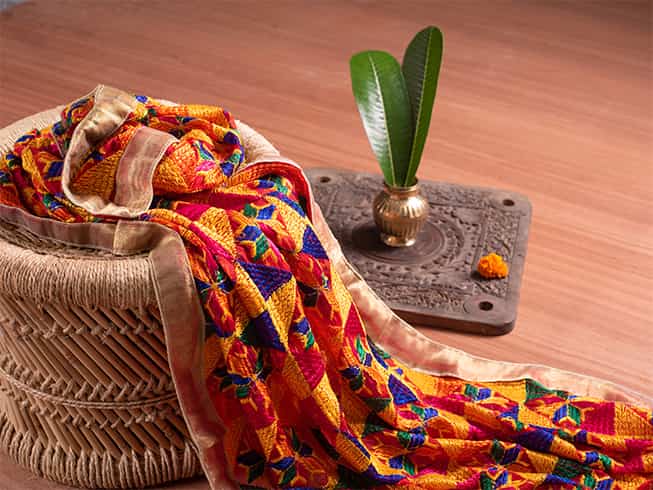
Supply: ichakdana.co
23. Sikkim – Lepcha:
The Lepcha neighborhood in Sikkim is probably the most well-known for its handloom tradition-the lepcha cloth. This murals is recurrently used on conventional ensembles together with cushion covers, shoulder luggage, desk mats, napkins, and others. Its base cloth is cotton whilst the wool used for the motifs are embroidered into the textile.
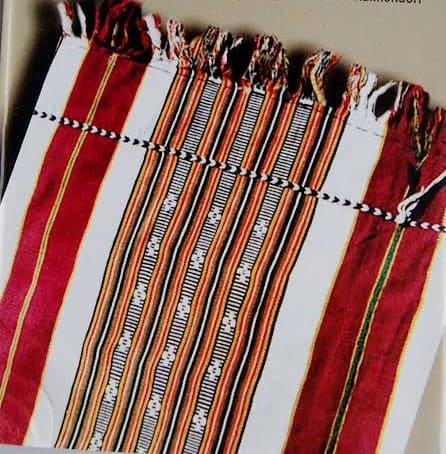
Supply: amazon.com
24. Telengana – Pochampally Ikat:
The Ikat textile is comprised of Bhoodan Pochampally, Telengana and is known for its geometric designs and intentional bleed. There are about 5000 looms within the villages of Pochampally and it has discovered a spot on UNESCO’s listing of International Heritage Websites, with its ‘iconic saree weaving clusters of India.’
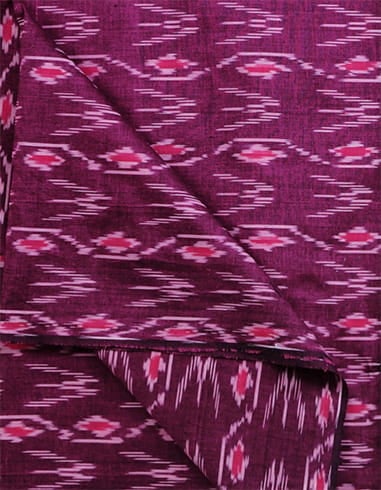
Supply: unnatisilks.com
25. Tripura – Pachra:
Pachra is the handloom cloth present in Tripura. This is a lengthy material piece worn as decrease apparel by means of the ladies. It extends beneath the knee, that includes distinctive stripe designs and embroidery in different sun shades. The pachra apparel is recurrently worn as a risa, a small piece of fabric overlaying the higher frame.
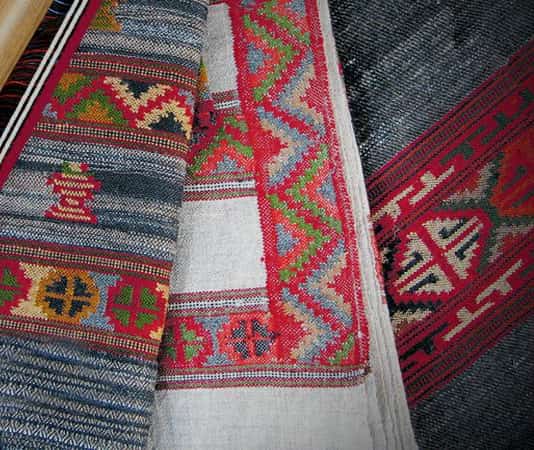
Supply: fb.com/handicraftbazarindia
26. Uttar Pradesh – Chikankari:
Chikankari is famously produced in Lucknow. This is a refined embroidery design that was once essentially offered by means of Nur Jehan, spouse of Mughal emperor, Jehangir. This material piece is first of all block-printed and after that the chikan stitches are used at the define. Chikankari embroidery was once white-on-white up to now, however at the moment it’s experimented with a large number of other colours.
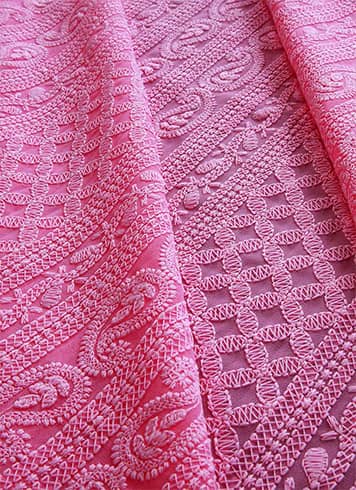
Supply: cbazaar.com
27. Uttarakhand – Panchachuli Weave:
The agricultural ladies of Panchachuli vary within the Himalayan area recurrently knit beautiful garments made up of sheep wool and Tibetan cashmere. They earn their supply of source of revenue from top of the range woolen merchandise like shawls, wraps, and stoles. This weaving culture has expanded with the assistance of the Panchachuli Cooperative that began in 1990 that has earnestly been selling the weave to overseas international locations.
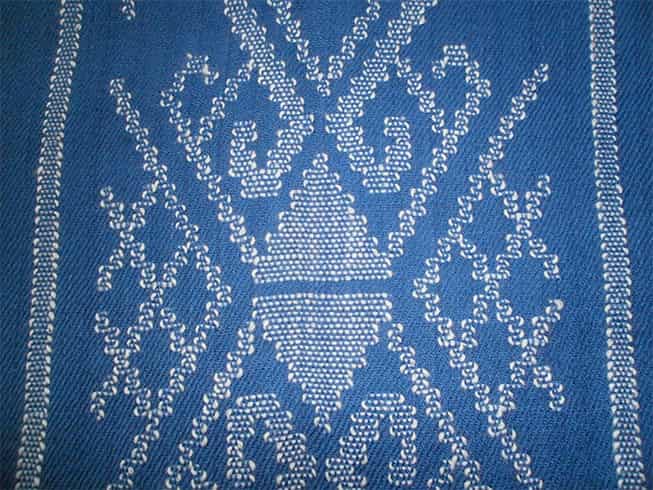
Supply: panchachuli.co.united kingdom
28. West Bengal – Jamdani:
Jamdani is among the major cloth utilized in West Bengal. This was once previous used as a get dressed subject matter for women and men however at the moment date, Jamdani is utilized in sarees with distinctive patterns. The material is evenly woven in hues of white, gold, maroon, inexperienced, black, and silver.
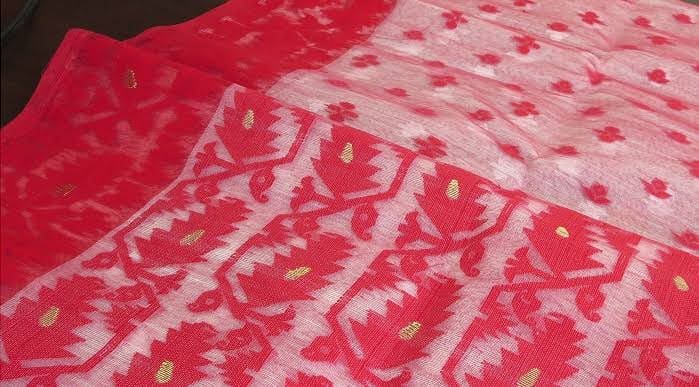
Supply: indiaemporium.com
Those are the preferred materials present in India. Every cloth represents the cultural identification of every state. We are hoping studying about them won you an perception.




